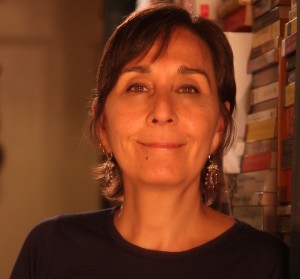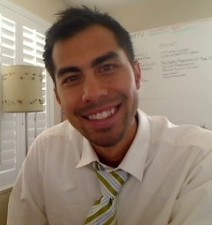
“Deaf-Heart” has been a hotly debated but ambiguous topic for many sign language interpreters. Betty Colonomos poses critical questions and provides hope that sign language interpreters can begin to embody this elusive quality.
A recurrent phrase that has been appearing in frequent discussions is “Deaf heart.” Our national interpreter organization, RID, has long been characterized as needing a Deaf heart. Recently, changes have been made to move RID to a more Deaf-centered perspective on the field of interpretation. The most recent evidence of this is the addition of Shane Feldman, who is Deaf, as the new Executive Director. Although institutional shifts are possible with changes in policies and practices, there is much misunderstanding of the concept as it applies to practicing interpreters.
Early Discovery
In the 1990’s there were many efforts to address this concern. New England states held a series of Ally Conferences that focused on the Deaf view of interpreters and their behaviors. This resulted in many discussions and workshops to clarify the meaning of an interpreter-as-ally. There was–and still is—debate about the fine line between ethical practices and ally responses. Today, it is considered acceptable and even desirable to provide information to hearing and Deaf consumers regarding accommodations, cultural differences, and resources. The emergence of Deaf Interpreters in our profession has contributed to the dissemination of information about accessibility and Deaf people, and has helped to educate the Deaf Community about their own power.
Deaf Activists & Social Dynamics
In the 21st century we looked to models from minority groups that view societal privilege and oppression to explain and understand the relationship between interpreters and the Deaf Community. Deaf activists are helping the community of interpreters and Deaf people to understand the social dynamics that create marginalization, audism, and racial/ethnic prejudices.
These robust and healthy discussions about privilege are paving the way for a change in the way we think about minority communities and cultures that goes beyond the medical and pathological view of Deaf people.
Internalization of Deaf Heart
But what about ‘Deaf heart’? In my travels and conversations with many interpreters, codas, and members of the Deaf Community it has become clearer that we still are not adequately capturing the qualities and behaviors of Deaf-heart interpreters. It is not about laws, services, ethics (at least from majority/privilege perspective), or training. It is something that can’t be taught. It is difficult to explain, yet palpably absent.
The internalization of a Deaf heart must come from the interpreter’s own sense of justice and morality.
A number of contributors to StreetLeverage have expressed this quality in different ways.
Dennis Cokely, in his article, Sign Language Interpreters: Complicit in a Devil’s Bargain?, provides a historical context that demonstrates the shift from earlier times when having ‘Deaf heart’ was intrinsic for interpreters to the indicators that this has significantly diminished. He explains:
How do we justify learning their language and profiting from it without giving back? In becoming a “profession” have we simply become parasites?”
and
What are we willing to do as individuals to become reconnected with Deaf people? Are we willing to adjust our work choices to accommodate the rhythm of Deaf people’s lives?”
Trudy Suggs illustrates this clearly in, A Deaf Perspective: Cultural Respect in Sign Language Interpreting
This type of knowledge (schools for the deaf) is an important element of Deaf culture for many people. Not recognizing its importance, or dismissing it when someone shares this information speaks volumes to cultural (il) literacy.
A participant from that group suddenly said with an incredulous look, “I don’t understand why you’re so upset that video interpreters don’t know city names? That’s really ridiculous. It’s such a small thing.” I was momentarily caught off-guard by her flippant response. I quickly clarified that I wasn’t upset, saying, “Quite the contrary. It’s just one of those things that Deaf people have to live with. It does become cumbersome if you have to make several calls a day and each video interpreter you encounter doesn’t know a city sign or town where a deaf school is.”
In Sign Language Interpreters: Stepping Out of the Shadow of Invisibility, Anna Witter-Merithew asks us to examine the human side of the interpreter.
“Do we think of ourselves as bystanders—present from a distance, and therefore, not involved? Have we internalized the neutrality we are to bring to our task as non-involvement and disinterest [versus objectivity and emotional maturity]?
What do we believe about ourselves, our work and our contribution to the good of the Deaf society? As we explore the answer to this and other hard questions, we must consider the implications of our history of behaving as if invisible and its potential contribution to the diffusion of responsibility.”
Overcoming Inertia
Part of having a Deaf heart is caring enough about the well being of Deaf people and their communities to put them above ego, pride, and unwillingness to fight for what is right. For example, I have interpreted in Juvenile Court many times and have come across several instances when parents/guardians should have the services of Deaf interpreters. It is obvious at the first meeting that the consumers have limited education, cognitive deficits, idiosyncratic language, or some combination of these. I inform their attorneys of this and find out that this case has been ongoing (sometimes up to three years) and the attorneys had no idea about this. Often these lawyers and social service personnel indicate that they “felt that something was not right” about their interactions with clients. Numerous interpreters have been working on these cases. They are deemed qualified to work in court; they are certified; all have had some degree of legal training. Why didn’t they recognize this? Intervene? Advocate for Deaf Interpreters?
Absence of Context
My professional experiences are replete with markers of the lack of “Deaf heart.” I have heard English interpretations of texts where Deaf people are proudly sharing their generational Deafness (e.g. fifth generation Deaf) conveyed as a matter-of-fact piece of information about having deaf children in each generation. The critical meaning of Deaf “royalty” is absent, leaving the possibility that the non-deaf audience might see this as a genetic flaw or “problem.”
In workshops I see many interpreters–student and experienced alike—who do not recognize ASL discourse that is representing a community’s point of view. For example, Deaf people often convey narrative that on the surface seems to be about them (an “I” Deaf text) when in fact the message is about the “We” Deaf story. The consequence is that the Deaf person appears to be discussing an isolated event, when the issue is really about a community with shared experiences. Which do you think has a greater impact on the audience? Being around Deaf people often allows interpreters to know how to distinguish “I” from “We” Deaf texts.
Interpreters who have no interactions with Deaf people outside of work miss much of the collective history and current burning issues that show up in interpreted interactions and collegial discussions. How can interpreters who hide behind their interpretation of the Code of Professional Conduct–instead of taking responsibility to intervene–employ strategies that are culturally appropriate to solve problems?
Accountability is the Beginning
Interpreters who demonstrate the qualities of Deaf heart are those who reflect on how their choices and decisions affect the Deaf Community; they question their practices that seem to be oppressive or damaging to the lives of Deaf people; they own their mistakes and share them with others. Most importantly, they seek input and advice from Deaf people and are not afraid to be uncomfortable with Deaf people’s responses and viewpoint.
A number of authors on Street Leverage have also shared what it is to have a Deaf heart. In Aaron Brace’s piece, The Duality of the Sign Language Interpreter, he digs deep and exposes some of the demons we face.
“…my customers are not well served by a quasi-messianic philosophy that valorizes my role far above theirs. It’s also simply inaccurate; customers often communicate effectively despite my excellent service rather than because of it.”
“I’m not sure I’ll ever fully understand my duality as both ally and enemy in the lives of Deaf people without some measure of guilt. Like many members of privileged groups, I hope to learn the right way to behave toward an oppressed group—once— and never again have to feel unsure of myself or guilty about my privilege.
When I demonstrate a fuller understanding of both what I give and what I take, it is returned by Deaf people, not with a sneering pleasure at my knowing my place, but with greater trust, friendship, and welcome.”
Gina Oliva, in her challenge to us in, Sign Language Interpreters in Mainstream Classrooms: Heartbroken and Gagged, boldly brings forth the role played by sign language interpreters in mainstream education and the significant impact this has on future generations of Deaf people. We have remained silent for too long about our part in harming deaf children and their potential for successful lives. We have allowed interpreters to present themselves as adequate language models and carriers of negative views of Deaf people. We have done little to admit to this injustice and have put our needs for employment above the lives of innocent children.
There are things we can do to correct this major injustice in our field. Anna Witter-Merithew in, Sign Language Interpreters: Breaking Down Silos Through Reflective Practice, emphasizes the need for us to look inside and seek guidance from our consumers:
“ It is important to find opportunities to talk with Deaf consumers about our work as sign language interpreters and to ask them to help us consider the implications of role implementation for their experiences.”
And in Deaf Disempowerment and Today’s Interpreter by Trudy Suggs, we see a Deaf view on how we can move forward.
“…remember that if a deaf person expresses frustration at disempowerment, it doesn’t necessarily mean she or he is angry, divisive or separatist. Rather, take a look at the situation, and figure out how, if at all, you or other interpreters might have contributed to the situation. “
Important Enough to Act?
The only question that remains is whether or not the practitioners in our field care enough about this to want to do something about it. Do we need to bring these discussions to the forefront of our public professional discourse? Should we insist that our programs for training interpreters address this issue and involve Deaf people much more in educating future interpreters? When will we uphold the integrity of our profession by supporting novices and by renouncing those who cast a pall over us?
When will we appreciate the valuable insights of codas to help us nurture the Deaf heart in us? Why do we vigorously debate whether a permanent seat on RID’s Board for an IDP (interpreter with Deaf Parents) is necessary when we know how much it will enhance the Deaf heart perspective in the organization? When will we acknowledge that Deaf Studies courses and programs are helpful in understanding, but they do not replace the need for feeling the stories?
We have a wonderful opportunity before us. Deaf people and codas are more aware of their own Deaf hearts and they are willing to talk about it and to help others recognize their own unconscious anti-Deaf heart actions. Why aren’t we eagerly seeking their input and guidance? Why aren’t we thankful for how they enrich us?
It is hard to walk in another’s shoes, but our work depends on the ability to see the world through the lenses of our consumers and clients. Without this, how can we become the noble profession we envision?
There is always room for a Deaf Heart…you are invited.


 What do projectile vomiting, cancelled and delayed flights, and an unrelenting Nor’easter have in common?
What do projectile vomiting, cancelled and delayed flights, and an unrelenting Nor’easter have in common? 